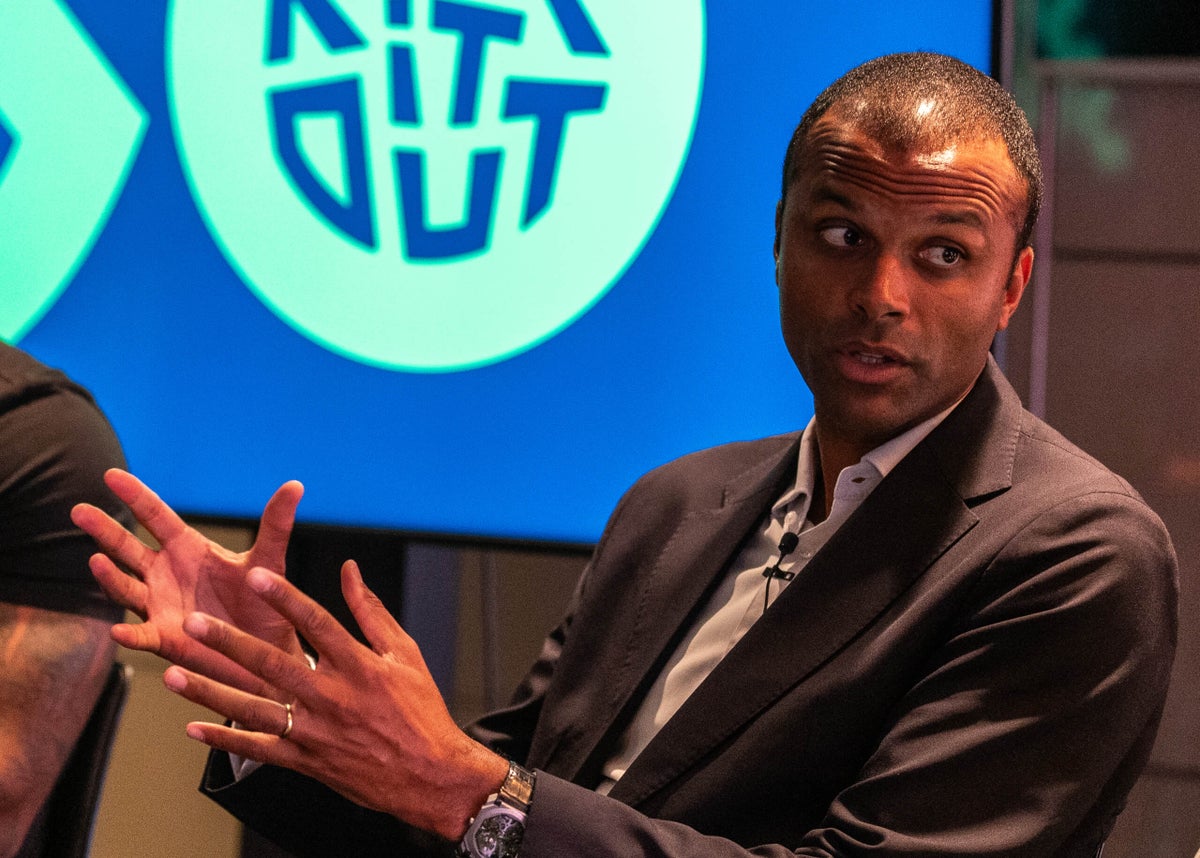The Premier League could face legal action from its players if it votes in favour of rules that result in a salary cap at a meeting of clubs next week.
Representatives of the Professional Footballers’ Association (PFA) are due to meet with the captains of England’s top-tier clubs next week before the Premier League shareholders’ meeting on November 21 where ‘anchoring’ is due to be put to a vote.
As the league looks to move on from Profitability and Sustainability Rules (PSR) — which limit club losses to a maximum of £105million over a three-year period — it voted in principle last year to replace PSR with a ‘squad-cost’ rule (SCR) that would limit clubs to spending no more than 85 per cent of their total income on wages.
Alongside SCR, the Premier League will vote on ‘anchoring’, which would set a hard cap on how much any team can spend on its squad. This has led to concern from the PFA.
Writing in The Times, PFA CEO Maheta Molango said: “If those measures are introduced, some clubs would immediately be in breach of the new rules. This would require them to reduce spending and, as the players’ union, that affects our members.
“There are established consultation processes and requirements in the English game around such proposals. We do not believe the Premier League has met these and we have been clear that we will take measures to challenge the new rules if they are brought in.”
Earlier on Wednesday, Molango told the BBC’s Today programme: “You cannot artificially cap someone’s ability to make a living as this would just not withstand any legal challenge.
“We’ve been clear with the Premier League that it (the introduction of a salary cap via a ‘Top to Bottom Anchoring’ rule) is something we will oppose but the Premier League themselves know that, even before the PFA does this, there will be clubs within their own room who will legally challenge the measure.
“The only ones who end up winning are the lawyers. We want to talk about football, we don’t want to talk about legal bills. There are ways to engage on measures around financial sustainability, but this cannot be imposed unilaterally, it needs to be negotiated and there are mechanisms (to consult) that need to be respected.”
A Premier League spokesperson told The Athletic: “We disagree with the PFA’s views regarding the proposed financial rules and the extensive consultation process we have been conducting with our clubs and other stakeholders.
“The PFA has had numerous opportunities since March 2024 to provide feedback on, and shape, the proposals and the principles that underpin them. Where the League has received feedback on the New Financial System from stakeholders, including the PFA, we have considered it carefully and, where appropriate, incorporated it into formulating the draft rules.
“It is the League’s objective to maintain the Premier League’s value, competitive balance and ensure clubs operate in a financially sustainable way.
“We are engaging with our clubs, and they will continue to evaluate the proposals. They will have the opportunity to vote on them later this month.”
Is ‘anchoring’ the answer to making the game more sustainable?
Analysis from Matt Slater
Be honest, how would you like it if your boss told you, “Sorry, you’re amazing — and we’re doing great — but I can’t give you a pay rise because our competitors aren’t doing as well as us”?
Because that is, in effect, what top-to-bottom anchoring does — it is a hard cap based on a multiple of what the worst club in the division has earned from the league’s central broadcast and commercial deals — and, when you put it like that, you can see why the players’ union hates it.
But what if I told you that the revenue multiple the league is proposing, five, is so generous it would only mildly inconvenience the likes of Chelsea and Manchester City at the moment, both of whom are already subject to UEFA’s more restrictive squad cost regime?
Or if I pointed out that we are talking about players who are earning £3million a year on average now, in a league where only a handful of the clubs make a profit in any given season and it is considered the height of restraint if you can limit your wage bill to 70 per cent of your revenue?

(Michael Regan/Getty Images)
Sure, none of us would like it if our salaries were capped, but most of us earn in a year what Premier League players earn in a week and would be out of work if our companies lost a fraction of what most English clubs lose every year.
The PFA will say there is plenty of money to go around and there are better ways to make the game more sustainable… we just haven’t come up with them yet.
Is anchoring the answer? The league says it will be part of the answer, alongside the new squad cost regime (a soft cap that is based on each club’s own earning power, as opposed to someone else’s) and a rule to ensure each club has enough cash in the bank to pay the bills.
It also believes anchoring will help to maintain the league’s fragile competitive balance, particularly as the top clubs will be earning even more money from UEFA and FIFA competitions going forward.
But the league arguably has a bigger problem with anchoring than the players not liking it: at least a quarter of its clubs do not like it, either.
For some, it is because they think it holds them back in the fight for elite talent with Real Madrid, PSG and Bayern Munich. For others, it is because they don’t like being told what they can and cannot spend. For one, it might just be because it is the league’s idea and they don’t like them.
So, regardless of whether anchoring is justifiable in terms of creating a more sustainable industry, or if it is the best way to achieve that outcome, the league simply might not have the votes to bring it in next week. In fact, it might not even be close enough to put it to a vote.
North American readers are probably wondering what on earth we are playing at, as these bosses versus workers disputes are very common in North American sports leagues and they are always settled with a renegotiated collective bargaining agreement, which is effectively a profit-sharing deal between the owners and players.
Now, there are several North American ideas that European football could do without — closed leagues, cheerleaders, dynamic pricing, for example — but collective bargaining agreements? Yeah, that might work.
